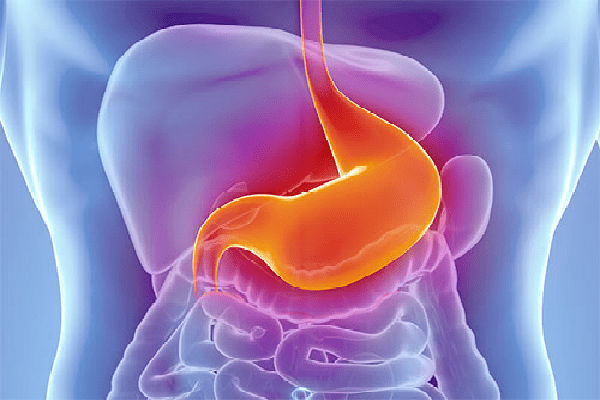Digestive system >>>> Gastroparesis - what is it?
Gastroparesis - what is it?

An important digestive organ - the stomach - can cause disruption of the entire digestive process due to the insufficient contractile function of its walls, which means that it is impossible to move food further along the intestinal tract. This pathological condition is called gastroparesis (from "gastro" - stomach, "paresis" - weakening).
Gastroparesis refers to diseases associated with disorders of innervation in the muscle fibers that form the walls of the digestive organ. The consequence of this kind of disorders are digestive disorders - nausea, heaviness in the stomach, vomiting.
Usually gastroparesis develops against the background of stomach injuries, including those associated with surgery. But there are other causes of gastroparesis. Thus, an increased blood glucose level in various forms of diabetes creates the prerequisites for interrupting connections during the transmission of a nerve impulse to the fibers of smooth muscle tissue, which causes a weakening of the peristalsis of the stomach and intestines.
Statistics also indicate idiopathic reasons for the development of gastroparesis, but there is still no reliable scientific evidence for this fact.
There are other diseases against which gastroparesis occurs: parkinsonism, toxic lesions of the nervous system (alcoholic, medicinal), osteochondrosis of the spine, autoimmune disorders of the vascular wall, gastrointestinal hormonal disorders.
It is the lower stomach that is responsible for the ability to move food to the sphincter (gatekeeper) and further to the small intestine. But as a result of a violation of peristalsis, food stagnates in the stomach, tries to evacuate by vomiting, and food debris cakes and turns into solid indigestible formations in the stomach lumen - bezoars.
Symptoms of gastroparesis are similar to many diseases (bulimia, anorexia, dyspeptic disorders, intestinal infections, poisoning, tumors, GERD): a feeling of early satiety, stomach pain, urge to vomit, occasional vomiting.
Gastroparesis is diagnosed in several ways:
- X-ray shows the rate of excretion of barium (contrast agent) from the stomach, which indicates the rate of evacuation processes in the stomach in general.
- By means of endoscopy, the condition of the stomach walls is examined and violations of the integrity of the stomach walls are detected.
- With the help of capsule gastroscopy, the condition of the stomach and the rate of excretion of the stomach contents are examined.
- Using a specially developed 13C-octane test, which shows how soon caprylic acid added to food for testing is metabolized, and by the products of its decay (carbon dioxide exhaled with air), the evacuation capacity of the stomach (speed) is determined using mass spectrometry.
- With the help of labeled radioisotopes taken with food, the rate of excretion of stomach contents is measured. The procedure is called "Scintigraphy".
Treatment of gastroparesis is based on the history of diseases that provoked gastroparesis. Further treatment depends on the severity of the course of gastroparesis. With a mild form of the disease, when food passes the stomach to some extent, and there is no significant weight loss, prokinetics are prescribed (metoproclamide, motilium, proserin), it is recommended to follow a diet with a minimum amount of fibrous, fatty food, long-digestible food (protein), small food dosed.
With an average severity of gastroparesis, drug therapy is recommended: antiemetic drugs (ondasetron); drugs that stimulate peristalsis (domperidone, itopride), the diet is adjusted to the patient's condition.
In severe gastroparesis, botulinum toxin injections are used to immobilize (more precisely, relax) the lower stomach so that food can pass through the sphincter. They stimulate peristalsis with electrodes implanted into the walls of the stomach (endoserosal electrical stimulation). Alternatively, an enterostomy is inserted into the jejunum for enteral administration of food.
The prognosis for the treatment of gastroparesis depends on the neglect of the processes. Mild to moderate gastroparesis can be overcome. For severe forms of the course of the disease, regular medical manipulations are required in a hospital setting. If it is impossible to overcome the disturbances of gastric motility by therapeutic and physiotherapeutic methods, gastrectomy (combined or total) is performed - removal of part or all of the stomach with the formation of an anastomosis.

Read

Read



























